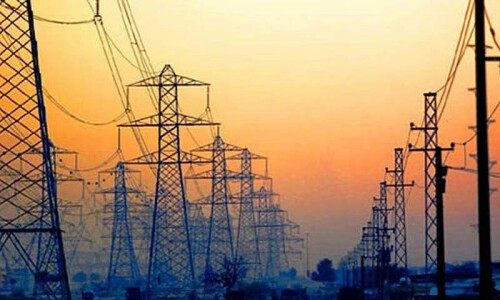PAKISTAN is yet again at a crossroads. It appears that, when direction fails, indirection must fill in. The arrest of Imran Khan on May 9, followed by the frenzied emotional outpouring and mayhem, witnessed across the country, especially Punjab, has left the country in something of a daze.
To those of us who prefer to remain at a distance, however, the events of the last two weeks speak of an extraordinary reduction or an all-time moral low in our history.
Much illuminating comment has been offered on the implications of what took place. But one particular aspect of the events in question seems to have escaped notice. That has to do with the strangely askew psychology of the masses. That is not cognate with the psychology of the masses of other countries but rooted in specific local history.
The fact is that what the scores of people involved in the recent pro-Imran protests and rioting were driven by was not so much concern over the illegality of his arrest as the fact that, to them, it was a kind of profanation or sacrilege or violation of the sanctity of his person.
We all know that, in contrast, not a finger was raised or murmur of credible protest heard when similar arbitrary arrests of top politicians took place during the PTI chairman’s tenure as prime minister.
The question, it seems, is one of prerogative and relates to Imran Khan’s ostensible specialness. Both, as it happens, were manmade and a byproduct of the controversial elections of 2018. Both are also, interestingly, linked to the dual persona of Khan which was strategically exploited for the sake of the creation of a political icon. That icon duly came into being and has since wrought havoc in our already fairly chaotic world.
It was a misstep that seriously misfired.
The precise extent and nature of the blunder of those concerned are only now coming to light. Interestingly, those in charge in 2018 did not fully reckon with what was a fine but crucial point: the fact of the overlap or split between politician and cricketing idol and that what they were setting up was not, properly, Imran Khan, the politician so much as Imran Khan, the erstwhile cricket star.
It was, as time has since proven, a misstep and one that has seriously misfired or boomeranged. Thousands in the country have, as a result, been plunged, for no fault of their own, into monumental confusion.
To be quite fair, they were prevented from making a strictly political choice in this particular case since what was apparently on offer was not a political leader but, instead, a well-loved sports idol in politician’s garb.
That obviously suited the PTI chairman who was enabled, as a result, to go to school, so to speak, and acquire, after his induction as the country’s prime minister, a smattering of the political language and, as best as possible, to fit the part.
That, with the help of some small knowledge of national and international affairs — occasional slips aside — and appropriate rhetoric, allowed him to take full advantage of the situation.
If the adoring crowds swallowed it all, it was not really their fault since the PTI chairman’s politics was not in fact what moved them so much as his voice and compelling persona. They were, actually, not in the least concerned about his political record or depth or the viability of his vaunted utopia.
What mattered to them was that he said what they wished to hear. Also, because of who he was, his words rang true. The national hysteria, seen in recent days, was consequently entirely understandable because of the PTI chairman’s privileged status and also because having him back in the saddle had become a kind of moral imperative for his followers.
The phenomenon is a classic one. Numbers of people have since become a danger to themselves, as well as the country, since they are ready to barter away their future for the sake of a vestigial magic spell or transferred charisma. That is the precise insidiousness of what the government is up against. Little wonder, then, that it appears hamstrung in the face of what it seems to regard, at least on the face of it, as an impasse.
The fact is that the state has taken enough of a buffeting for the moment and cannot afford much more. Thought must now be given not just to propping up the economy but also the fragile state structure. If the IMF demands transparency in the ‘system’ we should, at last, allow for it. The Pakistan idea, as opposed to and distinct from, existing polarities and ill-conceived impulses to power, should, properly, matter more than any merely alphabetical democracy.
It does not call for a great feat of the imagination to realise that, though what the flood-ravaged, economically crippled and internally beleaguered country is faced with today may not, strictly speaking, be war, it is nonetheless equivalent to a grave emergency.
The writer is the founder-chairman of Dialogue: Pakistan, a local think tank.
Published in Dawn, May 23rd, 2023















































Dear visitor, the comments section is undergoing an overhaul and will return soon.